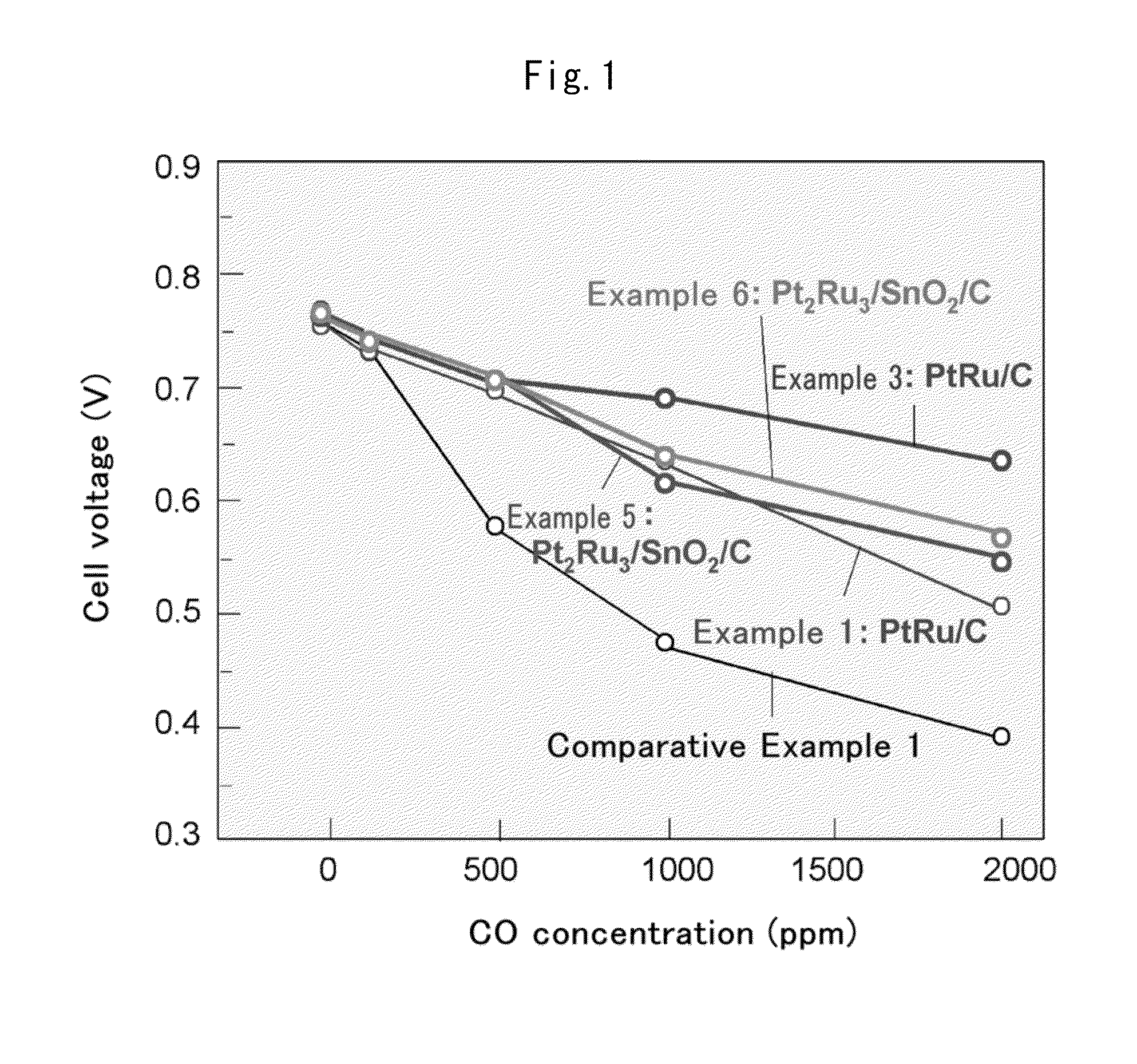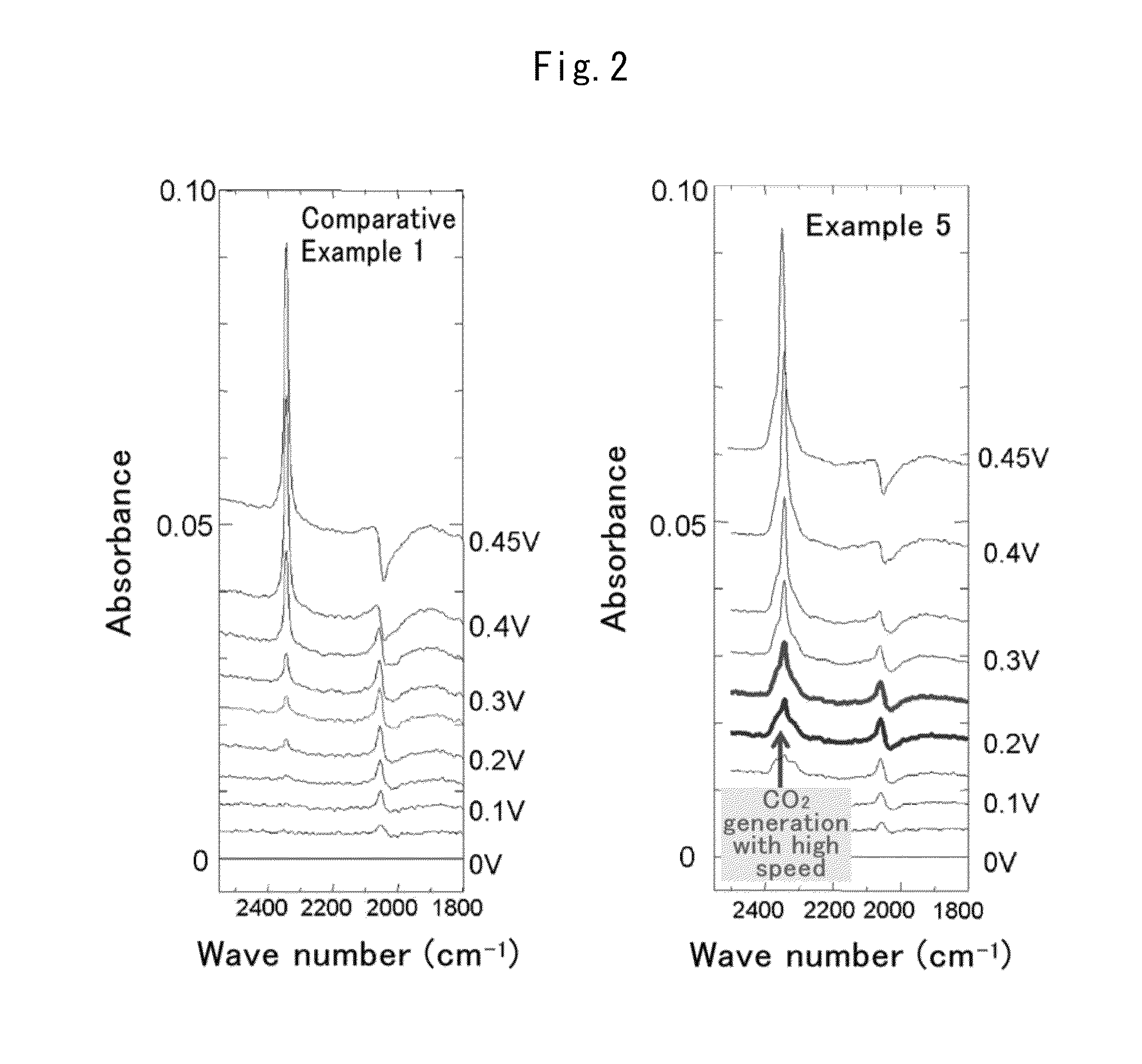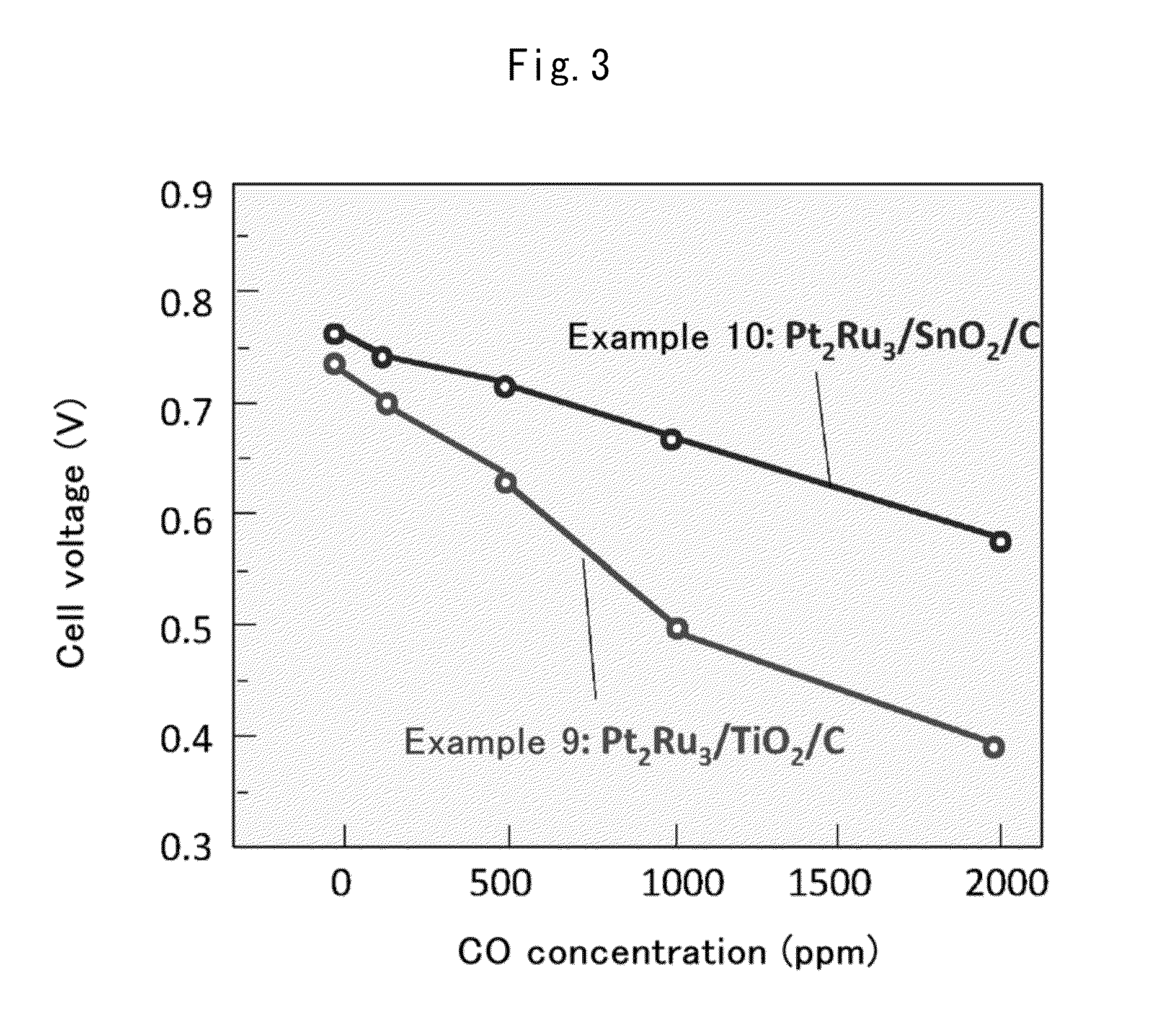Fuel cell anode catalyst and manufacturing method therefor
a fuel cell anode and catalyst technology, applied in the manufacture of final products, cell components, electrochemical generators, etc., can solve the problems of non-patent references and inadequate co tolerance of ptru/c catalysts, and achieve enhanced co tolerance and enhanced co tolerance
- Summary
- Abstract
- Description
- Claims
- Application Information
AI Technical Summary
Benefits of technology
Problems solved by technology
Method used
Image
Examples
example 1
(1)-1 Method of Supporting Pt
[0088]1. A 0.56506 g quantity of TKK carbon E support (specific surface area 900 m2 / g), 8.2675 g of dinitrodiamine platinum nitrate solution, and a small quantity of distilled water were mixed ultrasonically. Distilled water was added to make a total of 200 mL of distilled water, and 25 mL of ethanol was added.
2. A reflux tube was attached and stirring was conducted at 92° C. or higher for 8 hours.
3. Washing and filtering were conducted with about 1 L of distilled water.
(1)-2 Method of Supporting Ru
[0089]1. A 0.75745 g quantity (ratio (molar ratio) of Pt and Ru: 1:3) of RuCl3n(H2O) and a small quantity of distilled water were mixed ultrasonically. The mixture was charged to a three-necked flask, distilled water was added to make a total quantity of 85 mL of water, and 9 mL of methanol was added.
2. Reflux reduction was conducted while stirring at 65° C. for 6 to 8 hours. Although the color dissipated considerably, it did not disappear entirely. The temper...
example 2
[0095]With the exceptions that the quantity of RuCl3•nH2O employed was changed from 0.75745 g to 0.378 g and the ratio (molar ratio) of Pt and Ru was adjusted to 2:3, a PtRu / C catalyst was obtained in the same manner as in Example 1.
[0096]STEM measurement of the PtRu / C catalyst particles obtained revealed the average particle diameter of the PtRu particles to be 2.35 nm and the standard deviation in the particle diameter to be 1.16 nm.
example 3
[0097]With the exception that TKK carbon E support was replaced with porous carbon (specific surface area 1,800 m2 / g), a PtRu / C catalyst was obtained in the same manner as in Example 1. STEM measurement of the PtRu / C catalyst obtained revealed the average particle diameter of the PtRu particles to be 2.35 nm and the standard deviation in the particle diameter to be 1.16 nm.
PUM
| Property | Measurement | Unit |
|---|---|---|
| particle diameter | aaaaa | aaaaa |
| particle diameter | aaaaa | aaaaa |
| particle diameter | aaaaa | aaaaa |
Abstract
Description
Claims
Application Information
 Login to View More
Login to View More - R&D
- Intellectual Property
- Life Sciences
- Materials
- Tech Scout
- Unparalleled Data Quality
- Higher Quality Content
- 60% Fewer Hallucinations
Browse by: Latest US Patents, China's latest patents, Technical Efficacy Thesaurus, Application Domain, Technology Topic, Popular Technical Reports.
© 2025 PatSnap. All rights reserved.Legal|Privacy policy|Modern Slavery Act Transparency Statement|Sitemap|About US| Contact US: help@patsnap.com



